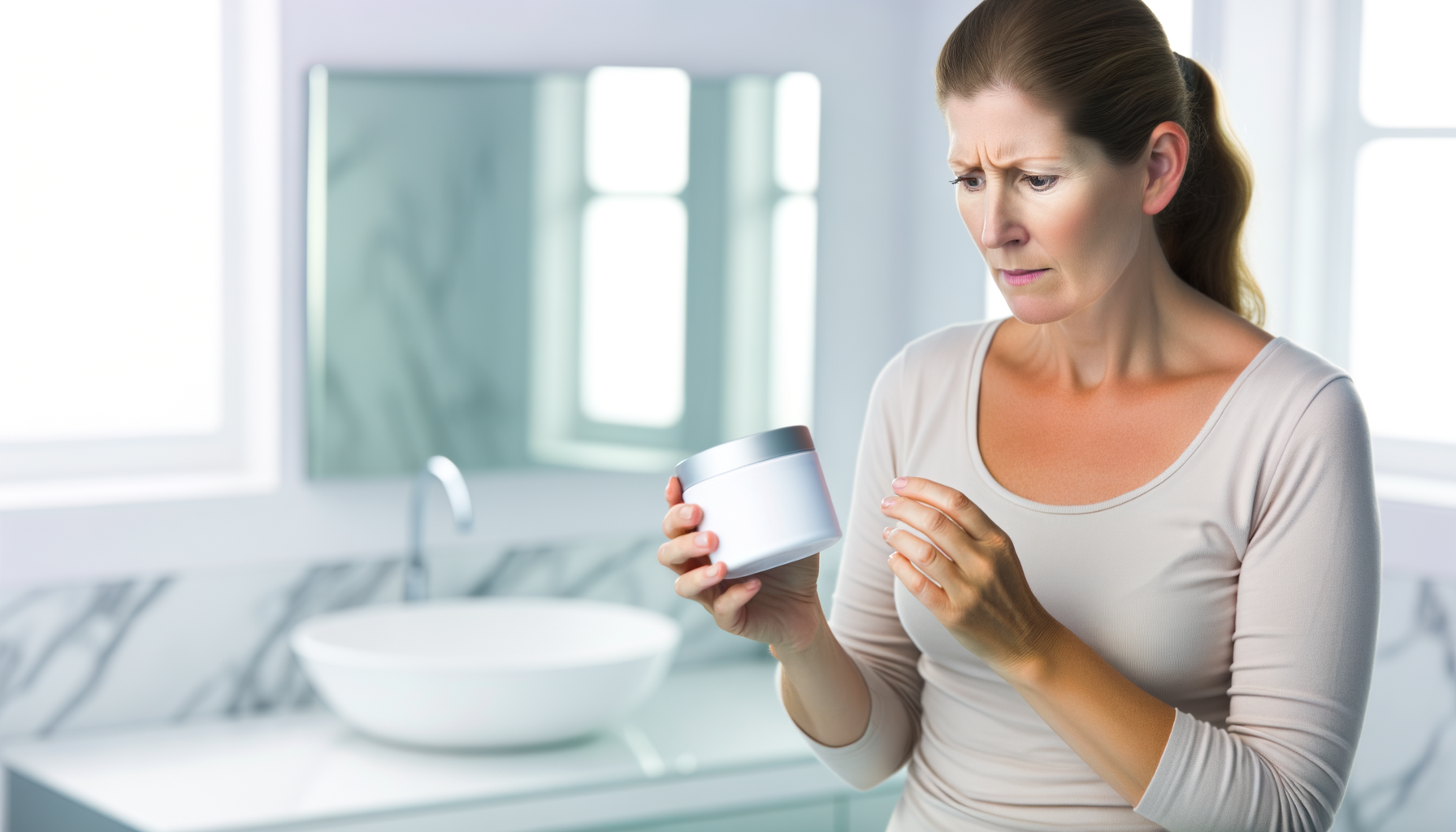Introduction to Laughter and Menopause
It is a well-documented phenomenon that children laugh far more frequently than adults. Studies suggest that the average child may laugh up to several hundred times a day, a stark contrast to the adult who, burdened by the responsibilities and stresses of life, may only muster a handful of chuckles. This disparity is not just a curious statistic; it has implications for health and well-being, particularly as we navigate the aging process. As laughter diminishes with age, so too can the numerous benefits it brings, leaving adults, and especially menopausal women, at a disadvantage.
The Significance of Laughter as We Age
As individuals age, the encounter with life changes such as retirement, the loss of loved ones, and physical health challenges can lead to a decrease in laughter and an increase in stress. For women, the transition into menopause can be a particularly challenging time, marked by a host of physical and emotional symptoms. Laughter, often underutilized, can be a powerful tool to mitigate some of the stressors associated with aging. Its significance lies in its ability to naturally stimulate the body’s relaxation response, counteracting the stress response that can be so detrimental to health during menopause.
The Concept of Laughter as Medicine
The adage “laughter is the best medicine” is more than a cliché. Scientific research supports the therapeutic benefits of laughter, including its ability to boost mood, strengthen the immune system, and improve blood flow. For menopausal women, laughter can serve as a non-pharmacological intervention to alleviate symptoms such as mood swings, anxiety, and stress. The physiological changes induced by laughter, such as the release of endorphins, can provide temporary relief from the discomforts of menopause and improve overall quality of life. Embracing laughter as a form of medicine may offer a complementary approach to traditional treatments for menopause, highlighting the importance of joy and humor in promoting health and well-being.
Health Benefits of Laughter for Menopausal Women
Stress Reduction and Endorphin Release
Menopause can be a stressful time for many women, with physical and emotional changes that can increase anxiety and tension. Laughter emerges as a natural stress-reliever, triggering the release of endorphins, the body’s natural feel-good chemicals. These endorphins promote an overall sense of well-being and relaxation, which can be particularly beneficial during the menopausal transition. The act of laughing relaxes the whole body, relieving physical tension and stress, leaving muscles relaxed for up to 45 minutes after a good laugh.
Mood Improvement and Mental Health
Laughter is a powerful antidote to feelings of sadness and depression, which can be common during menopause. It elevates mood and increases positive emotions, making it a valuable tool for enhancing mental health. Laughter therapy has been shown to increase optimism, enhance self-esteem, and reduce depression in menopausal women. By improving mood, laughter helps women feel more alive, attractive, and empowered, contributing to a happier and more fulfilling life.
Immune System Enhancement
Regular laughter has been linked to an increase in immune system activity. By decreasing stress hormones, laughter helps boost the body’s immune function and improves its ability to resist illness and aging. This immune system enhancement is crucial for menopausal women, who may be more susceptible to health issues as they age.
Pain Relief and Endorphin Interaction
Laughter not only promotes the release of endorphins for stress relief but also plays a role in natural pain relief. These endorphins may help to temporarily alleviate pain, providing a welcome respite for women experiencing menopausal symptoms. The interaction between laughter and endorphin release can lead to a decreased perception of pain and an increased sense of comfort.

Bette 100% All-Natural Relaxing Lavender Body Lotion.
Chemical-Free
Your relaxing night time body moisturizer to leave the day’s stress behind. Decompress and wish your body good night with the calming scent of lavender.
Cardiovascular and Respiratory Health
Laughter is good for the heart. It improves the function of blood vessels and increases blood flow, which can help protect against heart attacks and other cardiovascular problems. Additionally, deep laughter often involves deep breathing, which can enhance lung capacity and oxygenate the body. This improved respiratory function is particularly beneficial for menopausal women, who may experience changes in cardiovascular health as they age.
In conclusion, laughter offers a multitude of health benefits for menopausal women, from reducing stress and improving mood to enhancing immune function and providing pain relief. It also supports cardiovascular and respiratory health, making it a powerful, natural, and enjoyable form of medicine for women navigating this significant life transition.
Laughter’s Impact on Physical Well-being
Muscle Relaxation and Tension Relief
Laughter serves as a powerful antidote to stress, pain, and conflict. Nothing works faster to bring your mind and body back into balance than a good laugh. When we laugh, our body relaxes; a hearty laugh relieves physical tension and stress, leaving our muscles relaxed for up to 45 minutes after. Laughter triggers the release of endorphins, the body’s natural feel-good chemicals. Endorphins promote an overall sense of well-being and can temporarily relieve pain. This muscle relaxation can not only alleviate the strain we carry in our physical form but also contribute to better sleep and a feeling of rejuvenation.
Digestive System Benefits
Laughter can also have a beneficial impact on the digestive system. The act of laughing stimulates the organs through the alternation of contracting and relaxing abdominal muscles, which can aid in the digestion and absorption of food. This can also lead to an increase in the production of saliva, which contains enzymes necessary for breaking down food. Moreover, laughter can lead to an increase in respiratory rate, which can stimulate circulation and aid in the performance of the cardiovascular system, which in turn supports the digestive tract.
Natural Sleep Aid Properties
Laughter might also be considered a natural sleep aid. Through its stress-reducing properties, laughter can facilitate a decrease in the time it takes to fall asleep. The relaxation of muscles and the soothing of tension can lead to a more restful and deeper sleep. Additionally, the positive emotional state induced by laughter can prevent thoughts that often lead to insomnia, making it easier for individuals to drift off to sleep. The benefits of improved sleep include better mood regulation, cognitive function, and physical health, creating a positive feedback loop that further enhances well-being.
In conclusion, incorporating laughter into our daily routine can have profound effects on our physical well-being. From easing muscle tension to aiding digestion and improving our sleep, laughter is a holistic approach to health that is easily accessible and can be shared with others, multiplying its benefits. So, the next time you have the chance to share a joke or a humorous moment, remember that it’s not just fun – it’s also a step towards better physical health.
By the way, something for you, a little gift!!!
I am just in the middle of publishing my book. It’s about How women can balance their hormones. One part is about food and diet, of course.
Follow this link and enter your email.
I will send you this part of the book for free once the book is published. It has many concrete, practical tips and recipes and will help you feel better during menopause or times of Big hormonal fluctuations.
Annette, Damiva Lead for Health & Wellness

Social and Psychological Advantages of Laughter
Social Bonding and Community Building
Laughter is a universal language that transcends cultural and linguistic barriers, fostering social bonding and community building. When individuals laugh together, a sense of camaraderie and trust is established, which is particularly beneficial for menopausal women who may feel isolated due to the changes they are experiencing. Shared laughter in social settings can lead to the formation of support groups where women can discuss their experiences and offer mutual support. This social interaction is not only comforting but also instrumental in building a network that can provide practical advice and emotional sustenance during menopause.
Coping Skills and Resilience
The menopausal transition can be a challenging period, marked by physical and emotional upheavals. Laughter has been shown to enhance coping skills and resilience, helping women to navigate this phase with greater ease. It acts as a stress buffer, allowing for a more adaptive response to menopause-related stressors. By promoting a positive mood state, laughter can mitigate feelings of anxiety and depression, which are common during menopause. The ability to laugh at oneself and the situation can also provide a healthier perspective, making the journey through menopause less daunting.
Energy Levels and Vitality
Menopause can often lead to fatigue and a decrease in vitality. Engaging in laughter can be a natural energizer, boosting energy levels without the side effects associated with stimulants. The physical act of laughing vigorously exercises the diaphragm and abdominal muscles, increasing oxygen flow to the brain and body, which can invigorate and rejuvenate. Furthermore, the endorphins released during laughter not only elevate mood but also increase overall vitality, helping menopausal women to feel more alive and engaged in their daily activities.
In conclusion, laughter serves as a powerful tool for enhancing social bonds, building community, improving resilience, and boosting energy and vitality. As such, it should be embraced as a valuable component of a holistic approach to managing the psychological and social aspects of menopause.

Common chemicals can hurt your gut health, your skin health, your mental health, and immune system.
Do you know the three main ways that your body gets in touch with harmful chemicals?
Knowledge is Power!
The Ultimate Detox Guide will tell you how to lower your exposure to harmful chemicals!
Cognitive Benefits of Laughter
Memory Enhancement and Cognitive Health
Laughter may seem like a simple response to humor, but its impact on cognitive health is anything but trivial. Engaging in laughter can have a profound effect on memory enhancement for menopausal women. Chronic stress, which is common during menopause, has been linked to cognitive decline and memory problems. Laughter, by triggering the release of endorphins and other neurotransmitters, can improve mood and reduce stress. This, in turn, may help maintain better cognitive health and possibly enhance memory performance.
Moreover, laughter and humor engage multiple regions of the brain, promoting brain connectivity and cognitive flexibility. This engagement can be beneficial for memory and overall cognitive abilities. The act of laughing involves complex processes that stimulate areas of the brain responsible for emotional responses, motor skills, and social interaction. By activating these areas, laughter can help keep the brain agile and improve cognitive functions, which are essential for daily life and overall well-being.
Brain Connectivity and Cognitive Flexibility
Laughter is not only a powerful mood booster but also a catalyst for brain connectivity and cognitive flexibility. When we laugh, our brain’s neural pathways light up, connecting different regions that might not typically communicate with one another. This increased connectivity can lead to improved cognitive flexibility, allowing menopausal women to think more creatively and adapt to new situations more effectively.
Scientific studies have shown that humor and the resulting laughter can enhance brain health by improving the efficiency of brain networks. This includes the default mode network, which is active when we’re engaged in introspection and daydreaming, and the executive control network, which comes into play when we’re focusing on complex tasks. By bolstering these networks, laughter can help women navigate the cognitive challenges that often accompany menopause.
Furthermore, the social aspect of laughter, such as sharing a joke or a humorous moment with others, can also contribute to cognitive health. Social interactions are known to stimulate cognitive processes and support brain health, making laughter a valuable tool for maintaining cognitive function during menopause.
In conclusion, laughter offers a range of cognitive benefits that can be particularly valuable for menopausal women. From enhancing memory and reducing stress to improving brain connectivity and cognitive flexibility, laughter is a natural and accessible way to support cognitive health during this transitional phase of life.
Laughter Therapy and Laughter Yoga
Overview of Laughter Therapy and Laughter Yoga
Laughter Therapy and Laughter Yoga are innovative approaches to wellness that combine the joyous act of laughing with the therapeutic benefits of physical activity and breathing exercises. Laughter Yoga, in particular, was developed by Dr. Madan Kataria in 1995 and has since spread globally, being practiced in over 110 countries. This form of therapy initiates laughter as a body exercise in a group setting, often leading to genuine and contagious laughter. It is based on the scientific fact that the body cannot differentiate between fake and real laughter; both produce the same physiological and psychological benefits.
Laughter Yoga incorporates elements of pranayama, the ancient Indian practice of breath control, which is also a key component of traditional yoga. The sessions typically start with forced laughter exercises that transition into spontaneous laughter, combined with yogic breathing (pranayama), clapping, and body movements to enhance vitality and relaxation. The International Laughter Yoga website suggests that as little as 10-15 minutes of Laughter Yoga can yield health benefits.
Scientific Studies on Laughter Therapy for Menopausal Women
Research has begun to explore the specific benefits of Laughter Therapy for menopausal women. One study focused on the mood states of menopausal women, utilizing questionnaires before and after 10 Laughter Therapy sessions, each lasting 30 minutes. Results indicated increased optimism, enhanced self-esteem, and reduced depression among participants. Another study found that laughter therapy activated serotonin release, which helped improve quality of life scores and reduce depression in middle-aged women.
These studies underscore the potential of Laughter Therapy as a non-pharmacological intervention that can alleviate some of the psychological challenges associated with menopause, such as mood swings, depression, and anxiety. The therapy’s ability to induce a positive mental state can be particularly beneficial during this transitional phase in a woman’s life.
Practical Application and Duration of Laughter Exercises
Implementing Laughter Therapy and Laughter Yoga into daily life is relatively straightforward. Sessions can be conducted in groups, led by a certified Laughter Yoga instructor, or individually using guided materials. A typical session may last anywhere from 10 to 30 minutes and can be adapted to fit the needs and constraints of the participants.
For menopausal women, regular practice is recommended to achieve the best results. The duration and frequency of laughter exercises can vary, but consistency is key. Starting with shorter sessions and gradually increasing the duration as comfort with the practice grows can help ease participants into the routine. It is also important to create a safe and comfortable environment where participants feel free to let go and enjoy the laughter without judgment or inhibition.
In conclusion, Laughter Therapy and Laughter Yoga offer a unique blend of playful activity and therapeutic benefits that can be especially valuable for menopausal women dealing with the physical and emotional changes during this stage of life. With scientific studies backing its efficacy and a growing community of practitioners, this form of therapy presents a joyful and healthful addition to menopause management strategies.
Considerations and Concluding Thoughts
Potential Downsides and Incontinence Concerns
While laughter and humor have been hailed as non-pharmacological remedies to alleviate some menopausal symptoms, it is essential to consider potential downsides. For some women, the act of laughing can trigger urinary incontinence, a common issue during menopause due to weakened pelvic floor muscles. This involuntary leakage can cause embarrassment and social anxiety, deterring some women from engaging in laughter-filled situations. It is crucial to recognize that while laughter therapy can offer numerous health benefits, it may also inadvertently highlight incontinence issues that need to be addressed.
Seeking Professional Help for Laughter-Induced Incontinence
Women experiencing laughter-induced incontinence should not shy away from seeking professional help. Consulting a healthcare provider can lead to a diagnosis and tailored management strategies, such as pelvic floor exercises, lifestyle modifications, or medical interventions. It is important to approach this conversation with compassion and openness, as many women may feel hesitant to discuss such personal matters. Professional guidance can significantly improve quality of life and allow women to enjoy the medicinal benefits of laughter without apprehension.
The Right to a Joyful Life and the Role of Laughter
Despite the challenges that may arise, every woman has the right to a joyful life, and laughter plays a pivotal role in achieving this. It is a powerful tool that can enhance social bonds, improve mental and emotional well-being, and even offer physical health benefits. As women navigate the complexities of menopause, incorporating laughter into daily life can be a resilient coping mechanism. It is a reminder that amidst the transitions, there is still room for joy, lightness, and community. Embracing laughter as medicine does not negate the need for medical attention where necessary, but it does provide a complementary approach to living well during menopause.



















